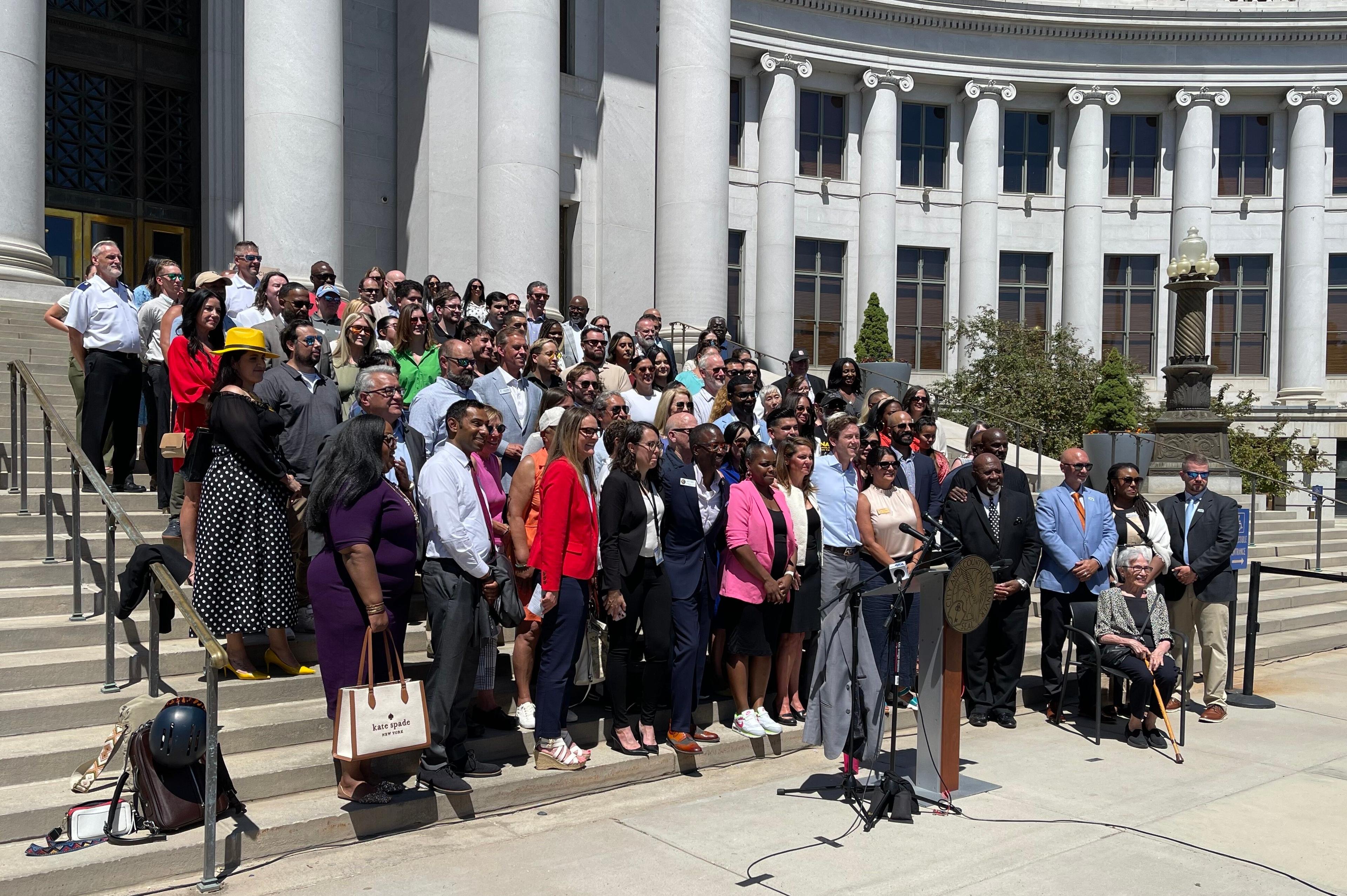In the coming weeks, the full City Council will debate Affordable Denver.
That's Mayor Mike Johnston's proposal to raise Denver's sales tax by .5 percent. The revenue would raise $100 million a year to fund affordable housing.
The plan would fund the building and preservation of housing for low-income, working-class and middle-class households.
The administration estimates it will raise sales taxes on residents by $2 a week. Items like health supplies, food and feminine hygiene supplies will be exempt from the tax.
"Denver is the best city in America because of our people – the teachers, nurses, firefighters, and working families who built Denver into what it is today,” Mayor Johnston said in a statement. “This proposal is a critical tool to make sure those Denverites can live in the city they serve for generations to come."
Johnston struggled to get the Affordable Denver sales tax to a City Council vote.
The proposal hit an early snag in July in the Council's Safety, Housing, Education & Homelessness Committee.
Councilmembers demanded more specifics and clarity. They raised concerns about who the proposal would — and wouldn't — help.
Some wanted greater support for households making less than 60 percent of the area median income.
District 2 Councilmember Kevin Flynn asked whether Denver can actually tax its way to greater affordability.
For the past two weeks, the Mayor's Office, sponsoring councilmembers, the Department of Housing Stability and the Department of Finance have all been hammering out details and addressing concerns.
Their work has been urgent since the final deadline to refer a measure to the voters is rapidly approaching.
The council committee unanimously supported the Affordable Denver sales tax.
On Aug. 7, the committee met again on the issue and unanimously sent the proposal to a full City Council vote.
At-large member Serena Gonzales-Gutierrez, District 10 member Chris Hinds, Flynn, District 11 member Stacie Gilmore, District 5 member Amanda Sawyer, Council President and District 1 member Amanda Sandoval, and District 3 member Jamie Torres all voted to push the plan forward.
“Creating more affordable housing is one of the top priorities I hear from constituents,” said Sandoval in a statement. “I’m proud to work side-by-side with my colleagues on Council to create strong, meaningful change that will make a difference in the lives of Denverites for generations to come.”
Affordable housing continues to be a pressing concern for Denverites.
According to the Colorado Health Foundation's bipartisan Pulse poll, the cost of living is the dominant concern among residents.
To push the proposal, the Johnston administration secured endorsements from more than 100 individuals and community groups. Those span from Habitat for Humanity of Metro Denver to the Colorado Coalition for the Homeless.
“As a coalition of over 20 Denver Metro Area affordable housing providers working across the housing continuum from homelessness to homeownership, we at the Neighborhood Development Collaborative know that flexible funding for diverse housing needs is vital to preventing displacement and homelessness while supporting homeowners and renters,” wrote Jonathan Cappelli, executive director of Neighborhood Development Collaborative in a letter to City Council. “NDC's member organizations support this ordinance because it can meet these needs at a scale that will make a difference."
What's next?
The full City Council will consider Affordable Denver with a first reading on Monday, Aug. 12.
Council will likely vote on Monday, Aug. 19.
If City Council votes in favor of the plan, it will refer the issue to voters on the Nov. 5 ballot.











